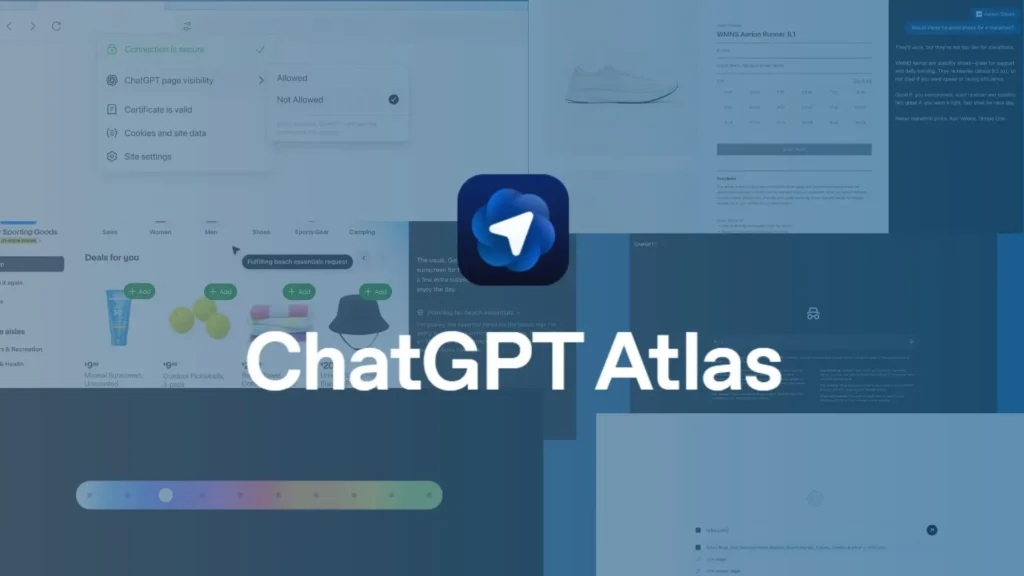OpenAI has unveiled ChatGPT Atlas, a new web browser with its flagship AI assistant ChatGPT built directly into the interface. The launch version is currently available exclusively for macOS users.
An AI-Driven Browsing Experience
According to OpenAI, Atlas merges traditional web browsing with intelligent assistance, enabling users to interact with ChatGPT without ever leaving their tabs. Built on the Chromium engine, the browser allows contextual AI interaction — meaning ChatGPT can remember on-page information and respond based on it.
“You can ask ChatGPT to, for example, find all the job listings you viewed last week and summarize industry trends so you’re ready for interviews,” OpenAI explained.
The company emphasizes that users will retain full control over data sharing with the assistant, though contextual memory is intended to improve efficiency and responsiveness.
Features and Access
Atlas introduces an Agent Mode, allowing ChatGPT to perform delegated tasks such as research, event scheduling, or meeting bookings. This mode is currently in preview for users subscribed to Plus, Pro, and Business plans.
At launch, Atlas supports Free, Plus, Pro, and Go plans on macOS, while Business, Enterprise, and Edu customers can test the beta version with administrative approval. Release dates for Windows, iOS, and Android remain undisclosed.
Market Impact and Criticism
Although OpenAI does not position Atlas as a direct competitor to Google Chrome, analysts suggest it could impact browser market dynamics. Following the announcement, shares of Alphabet, Google’s parent company, fell 2.4% (Class A) and 2.2% (Class C).
As of late September 2025, Google Chrome held a 71.86% global market share, according to StatCounter Global Stats.
Notably, OpenAI previously expressed interest in acquiring Chrome from Google — a statement that stirred debate about competition and innovation in the browser space.
However, the launch has also drawn privacy concerns due to the browser’s optional data collection features, which some experts fear could expose users to hidden data leaks. Developers of the Brave browser cited OpenAI’s approach as potentially vulnerable to AI-embedded exploitation, comparing it to Comet, an AI-powered project by Perplexity, recently valued at $25 billion.
Simon Willison, founder of Datasette, noted that Atlas — like other AI-integrated applications — may be susceptible to prompt injection attacks, a class of exploits targeting hidden instructions within AI systems.
Earlier, EdisonWatch researchers highlighted similar vulnerabilities in ChatGPT, suggesting that AI-enabled browsers must adopt stronger privacy frameworks to ensure user trust.


